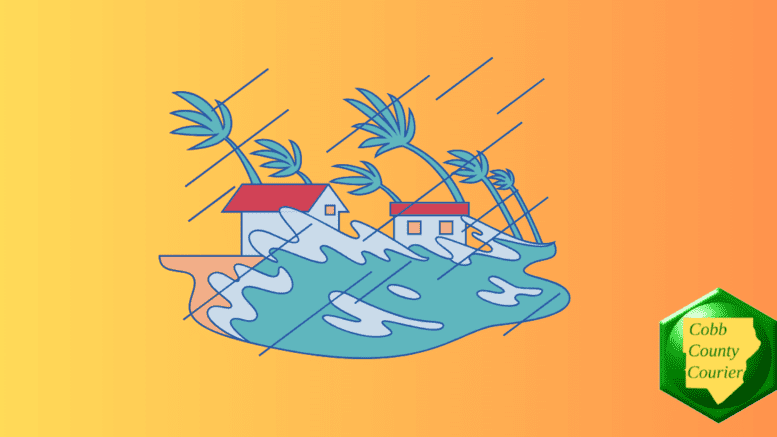By John A. Tures, Professor of Political Science, LaGrange College
If you had relatives or friends in the path of Hurricanes Helen and Milton, you were probably like me, watching the weather forecast, praying everyone would be safe. Former students in Central Florida managed to ride it out, but our college graduates who lived in Asheville and Augusta were not so fortunate. Trees smashed their houses, and they were without Internet or power for quite some time.
America is a lot of things. One thing our country doesn’t get enough credit for enough is being generous. From celebrities donating or putting on special events as fundraisers to everyday people like you and me, we’re looking at bringing supplies or sending relief to charities. In tough times like this, we ask what we can do, and what’s the right way to help.
The most important thing to do is to ask how one can help immediately. A former nursing student up in Western North Carolina wrote about how people in the community thanked everyone for their generosity, but begged people to pause unscheduled deliveries, so they could work through their initial donated items, determine needs, and update distribution plans. They asked for folks for monetary donations to relief funds.
A great Washington Post article by Sarah Raza (now on MSN.com) titled “How to help the victims of Hurricane Milton” states “Many organizations are already on the ground since Hurricane Helene and prepositioned operations ahead of Milton. The best way to help recovery efforts is often with a monetary donation; financial contributions allow organizations the most flexibility when allocating funds. Do not send supplies unless requested by an organization.” Raza includes a number of groups to help, and links, from American Red Cross, Americares, Heart to Heart, Direct Relief, World Vision, Save the Childre and All Hands and Hearts.
Volunteering is another great way to help. One thing I learned in volunteering for the cleanup for Hurricane Ian is not to rush in without a plan to help. Everyone wants to help now, but if you’re doing in now, you may not be ready for the physical and mental demands of the job, and those are real. Even when we arrived several months later, it still looked like Ft. Myers and Pine Island were hit the day before. People definitely needed help for damages and for their mental well-being.
Raza writes “If you’d like to volunteer, apply to work with a reputable organization already on the ground. Though many folks like to get hands-on experience, showing up without a contact or partnering organization can be unhelpful. If deployed, volunteers should be prepared with equipment and gear, such as boots and personal protective equipment including masks.”
We coordinated with UMCOR, the United Methodist Committee on Relief, who were ready to accommodate us in our help. Sure it meant sleeping on cots in church meeting halls, showering in a trailer, line drying our clothing in a church courtyard. But remember that if you’re going, you are swelling the population of a resource-depleted area. This summer, I wrote about how innovative that group is in meeting people’s needs, like making water bottles from humidity. And it’s not just UMCOR. A local Presbyterian pastor who retired to Florida touted the local church’s efforts in Central Florida. And a local Baptist church recruited me to help with packing supplies for Augusta. In these times, denominations should not be boundaries we cannot cross when helping others.
Finally, I asked one of my graduates how I could send money to him as he helps his neighbors. He told me to send it instead to BeLoved Asheville, the group he tells me is doing so much to help that hard-hit city.
The most important thing to do is help now. The next step is to figure out how best to get that aid over, as well as determine what we can personally do.
John A. Tures is a professor of political science at LaGrange College in LaGrange, Georgia. His views are his own. He can be reached at jtures@lagrange.edu. His “X” account is JohnTures2.
